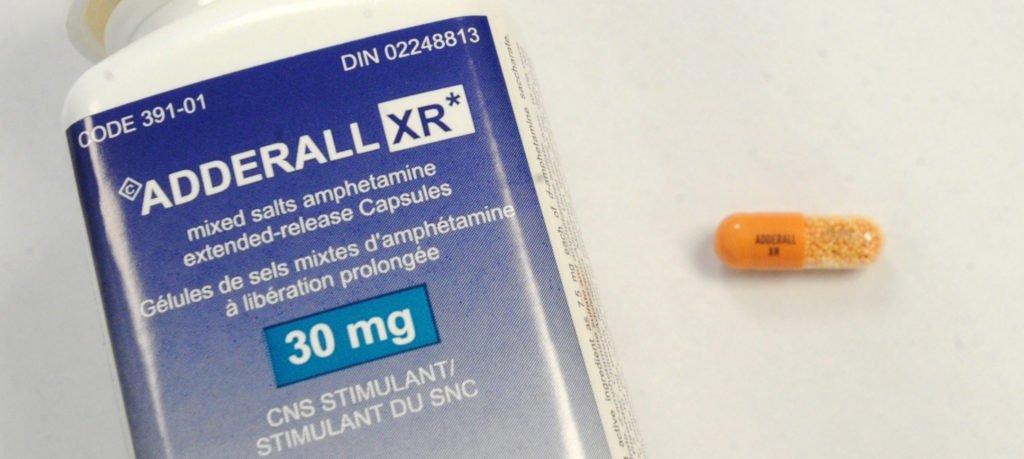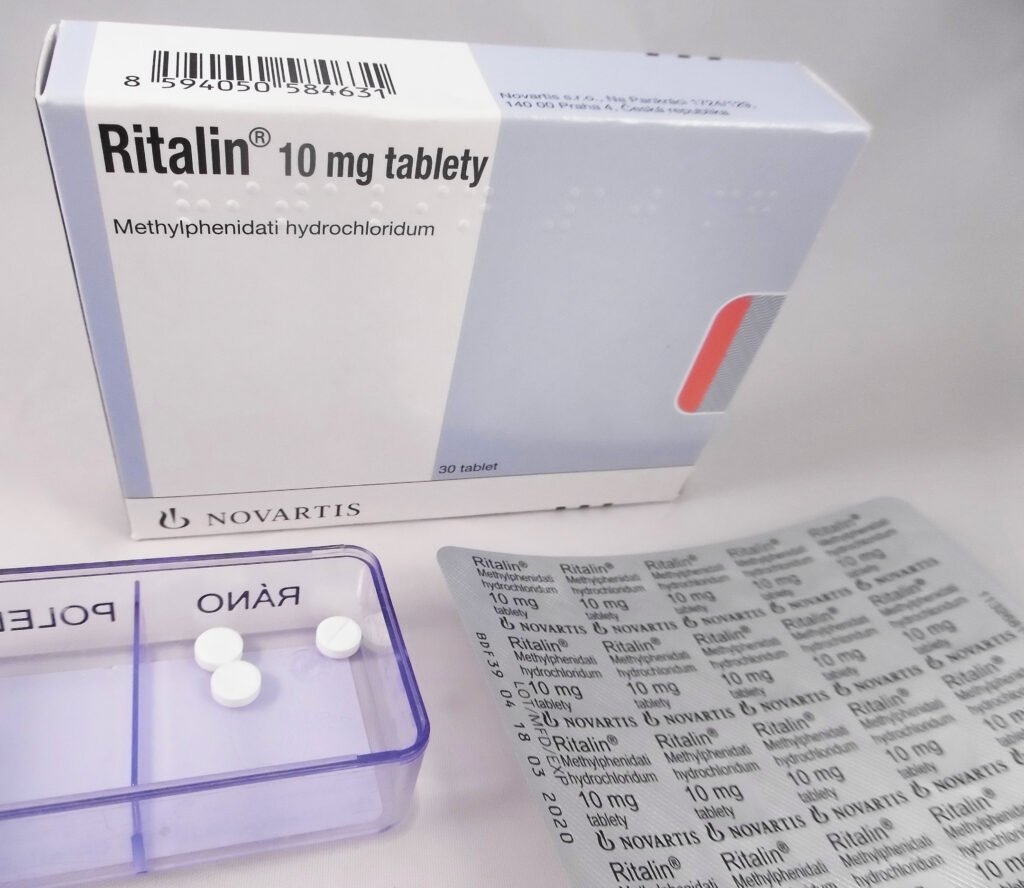Introduction
Attention Deficit Hyperactivity Disorder (ADHD) is a prevalent neurodevelopmental disorder impacting individuals globally. Its hallmark features include inattention, hyperactivity, and impulsivity, often presenting challenges in daily life. Fortunately, there are viable treatment approaches, with Buy Adderall Online being a widely prescribed medication for ADHD management.
ADHD symptoms can disrupt concentration, organization, and task completion, affecting academic and occupational performance. Early diagnosis is vital, typically involving a comprehensive evaluation of medical history, behavioral patterns, and symptom severity.
Adderall, a medication containing amphetamine and dextroamphetamine, is commonly used to alleviate ADHD symptoms. It works by enhancing neurotransmitter activity in the brain, improving focus and impulse control. However, its use should be closely monitored by healthcare professionals due to potential side effects and the risk of misuse.
Understanding ADHD
ADHD, or attention deficit hyperactivity disorder, is a neurological condition that primarily manifests in childhood but can continue to affect individuals throughout adolescence and into adulthood. This complex disorder significantly impacts a person’s cognitive and behavioral functions, making it challenging for them to maintain attention, regulate impulses, and effectively manage their energy levels.
One of the hallmark characteristics of ADHD is inattention. People with ADHD often find it difficult to sustain their focus on tasks, frequently becoming easily distracted by external stimuli or their own thoughts. This can hinder their academic and professional performance, as well as their daily activities.
Hyperactivity is another key feature of ADHD, especially in children. These individuals tend to be in constant motion, have difficulty sitting still, and often exhibit restlessness. In adults, hyperactivity may present as inner restlessness or an inability to relax.
Impulsivity is the third core symptom of ADHD. People with ADHD may act without thinking about the consequences, leading to impulsive decisions and behaviors that can disrupt their lives and relationships.
Effective management of ADHD often involves a combination of therapies, behavioral interventions, and, in some cases, medication. Understanding the nature of ADHD and seeking appropriate support and treatment can help individuals with this condition lead fulfilling and successful lives, despite the challenges it presents.
Symptoms of ADHD:
Attention Deficit Hyperactivity Disorder (ADHD) is a neurodevelopmental condition characterized by a set of symptoms that can significantly impact an individual’s daily life. While the presentation of ADHD can vary from person to person, it generally includes three core characteristics: inattention, hyperactivity, and impulsivity.
1-Inattention:
Inattention is a fundamental feature of ADHD, and individuals with this condition often struggle to focus on tasks and sustain their attention. Some common symptoms of inattention include:
- Difficulty staying focused on one task or conversation.
- Frequent forgetfulness, including missing appointments or forgetting important dates.
- Being easily distracted by external stimuli or unrelated thoughts.
- Struggling to organize tasks or activities.
- Making careless mistakes in school or work due to a lack of attention to detail.
These symptoms can affect academic and occupational performance, making it challenging to complete assignments, follow instructions, or maintain consistent productivity.
2. Hyperactivity:
Hyperactivity is a hallmark symptom of ADHD, particularly in children. However, in adults, it may manifest differently. Common signs of hyperactivity include:
- Restlessness and an inability to stay seated, often described as feeling “on the go” constantly.
- Fidgeting or tapping hands and feet.
- Talking excessively or interrupting others during conversations.
- Difficulty engaging in quiet, focused activities for an extended period.
Hyperactivity can lead to difficulties in social settings, as it may be perceived as disruptive or impolite. In children, it often becomes noticeable in settings like the classroom or during organized activities.
3. Impulsivity:
Impulsivity refers to acting without thinking about the potential consequences of one’s actions. Individuals with ADHD may exhibit impulsivity in various aspects of their lives, including:
- Speaking or blurting out responses before a question is fully asked.
- Making impulsive decisions, such as spending money recklessly or engaging in risky behaviors.
- Difficulty waiting their turn in line or during group activities.
Impulsivity can lead to challenges in personal relationships and difficulties in adhering to rules and regulations.
It’s important to note that not every individual with ADHD will display all these symptoms, and their severity can vary. Additionally, ADHD can present differently in children and adults. While children often show more pronounced hyperactivity, adults may primarily struggle with inattention and impulsivity.
How is ADHD Diagnosed?
Diagnosing Attention Deficit Hyperactivity Disorder (ADHD) is a complex process that requires a thorough assessment by a qualified healthcare professional. Given the diversity of symptoms and their potential overlap with other conditions, a multi-faceted approach is essential for an accurate diagnosis. The diagnostic process typically involves clinical interviews, behavioral assessments, and psychological testing.
1-Clinical Interviews:
Clinical interviews are a critical component of the ADHD diagnostic process. They involve gathering information from the individual being evaluated, their family members, and, when applicable, teachers or other caregivers. This information helps create a comprehensive picture of the individual’s behavior, functioning, and challenges. The healthcare professional may inquire about:
- The presence and duration of symptoms, including inattention, hyperactivity, and impulsivity.
- Family medical history, including any history of ADHD or related conditions.
- The individual’s academic or occupational performance and any difficulties experienced.
- Behavioral patterns in various settings, such as home, school, and social environments.
2. Behavioral Assessment:
Observing the individual’s behavior in different contexts is a crucial part of the diagnostic process. This step allows the healthcare professional to directly assess the presence and impact of ADHD symptoms. Behavioral assessments may involve:
- Evaluating the individual’s behavior during structured tasks or activities.
- Monitoring their ability to sustain attention, manage impulses, and engage in age-appropriate behaviors.
- Assessing social interactions and relationships to identify any challenges related to ADHD symptoms.
3. Psychological Testing:
Psychological testing provides additional insight into cognitive and emotional functioning. These assessments help rule out other potential causes of symptoms and provide a more comprehensive understanding of the individual’s strengths and weaknesses. Common psychological tests used in ADHD diagnosis may include:
- Intelligence tests to assess cognitive abilities.
- Tests of executive function to evaluate skills such as planning, organization, and impulse control.
- Emotional and behavioral assessments to identify comorbid conditions like anxiety or depression.
Once the assessment is complete, the healthcare professional reviews the gathered information to determine whether the criteria for an ADHD diagnosis are met. The diagnosis is typically made based on the presence of persistent and impairing symptoms in multiple settings, ruling out other medical or psychological conditions that may mimic ADHD.
Treatment Options
Managing ADHD
Managing ADHD involves a multifaceted approach tailored to individual needs. This comprehensive strategy typically encompasses behavioral therapy, lifestyle changes, and, in some cases, medication.
1-Behavioral Therapy:
Behavioral therapy is a cornerstone of ADHD management. It equips individuals with ADHD with valuable strategies to enhance focus, impulse control, and self-regulation. Cognitive-behavioral therapy (CBT) is a common approach that teaches individuals how to recognize and modify patterns of thought and behavior. Other forms of behavioral therapy may focus on improving organizational skills, time management, and coping mechanisms to address the challenges associated with ADHD.
2. Lifestyle Changes:
Implementing lifestyle changes can significantly impact the management of ADHD symptoms. Structured routines and schedules help individuals better organize their tasks and time, reducing forgetfulness and impulsivity. Regular exercise can improve mood and concentration. A balanced diet rich in nutrients like omega-3 fatty acids and antioxidants may support brain health. Adequate sleep is crucial for overall well-being and can help mitigate symptoms.
3. Medication: Medication can be a highly effective component of ADHD management, particularly when symptoms are severe or significantly impair daily functioning. Stimulant medications like Buy Adderall Online and non-stimulant options like atomoxetine may be prescribed. These medications work by enhancing neurotransmitter activity in the brain, improving attention and impulse control. However, medication should always be administered under the supervision of a healthcare professional, as its use requires careful monitoring and adjustment.
Adderall: A Closer Look
What is Adderall?
Adderall is a prescription medication renowned for its effectiveness in managing attention deficit hyperactivity disorder (ADHD). It combines two active ingredients: amphetamine and dextroamphetamine. These powerful stimulants work on the central nervous system, primarily by influencing neurotransmitters in the brain.
Buy Amphetamine Online and dextroamphetamine primarily target two crucial neurotransmitters: dopamine and norepinephrine. By increasing the release and availability of these neurotransmitters, Adderall helps individuals with ADHD enhance their focus and attention span. This can be especially beneficial in reducing distractibility and impulsivity, two hallmark symptoms of the disorder.
How Adderall Works
Adderall is a widely prescribed medication known for its effectiveness in managing ADHD disorder. It operates by influencing key neurotransmitters in the brain, particularly norepinephrine and dopamine, which are closely associated with attention and impulse control.
1-Mechanism of Action:
Adderall contains two active ingredients, amphetamine, and dextroamphetamine, both of which are central nervous system stimulants. These stimulants work by increasing the release and availability of neurotransmitters in the brain. In the case of ADHD, they primarily target norepinephrine and dopamine.
The body’s “fight or flight” response involves norepinephrine, which plays a role in alertness and attention. Dopamine, often known as the brain’s “feel-good” neurotransmitter, is linked to motivation, reward, and pleasure. By enhancing the levels of these neurotransmitters, Adderall helps individuals with ADHD improve their ability to focus, sustain attention, and manage impulsive behaviors.
2. Effectiveness in Treating ADHD:
Numerous clinical studies and real-world experiences have demonstrated the effectiveness of Adderall in alleviating ADHD symptoms. It allows individuals with ADHD to concentrate more effectively, control their impulses, and follow through on tasks, leading to improvements in academic and occupational performance, as well as daily functioning. While Adderall is not a cure for ADHD, it can be a valuable component of a comprehensive treatment plan. It helps individuals better manage their symptoms, enabling them to engage more fully in various aspects of life. Nevertheless, it’s crucial to highlight that the efficacy of Adderall can differ among individuals, and a healthcare provider should closely monitor the response to the medication.
3. Dosage and Administration:
The dosage of Adderall is customized for each patient, taking into account their specific needs and individual response. Healthcare professionals carefully assess the severity of ADHD symptoms and the patient’s tolerance to determine the appropriate starting dose. Over time, healthcare providers may make dosage adjustments to enhance the therapeutic benefits while minimizing side effects.
Adderall is typically administered orally in tablet or capsule form. It is crucial for patients to follow their healthcare provider’s instructions regarding when and how to take the medication. Regular follow-up appointments are essential to monitor the patient’s progress and ensure that the dosage remains appropriate.
Conclusion
Fortunately, there is a range of effective strategies for managing ADHD, and among them, Buy Adderall Online stands as a prominent treatment option. Adderall’s mechanism of action, through the enhancement of neurotransmitters like norepinephrine and dopamine, offers individuals with ADHD the potential to improve their focus, attention span, and impulse control. However, the effectiveness of Adderall is influenced by individual factors, and its use requires careful monitoring by healthcare professionals.
Diagnosing ADHD is a critical initial step, involving clinical interviews, behavioral assessments, and psychological testing. This comprehensive evaluation ensures that an accurate diagnosis is reached, ruling out other potential causes of symptoms.
ADHD management strategies encompass behavioral therapy, lifestyle modifications, and medication. Behavioral therapy equips individuals with essential skills for self-regulation, while lifestyle changes create an environment conducive to better symptom management. Medication, such as Adderall, can be a valuable tool, especially in cases where symptoms significantly impair daily functioning.
Individualization is key in the treatment of ADHD, as each person’s experience and needs are unique. Tailoring the treatment approach, whether through behavioral therapy, lifestyle changes, or medication, allows individuals to harness their strengths and mitigate the challenges associated with ADHD effectively.
In summary, navigating ADHD and its treatment with Buy Adderall Online without prescription is a journey that requires a comprehensive understanding of the disorder, an individualized approach to care, and collaboration with healthcare professionals. With the right strategies and support, individuals with ADHD can unlock their full potential, leading fulfilling, and productive lives.









